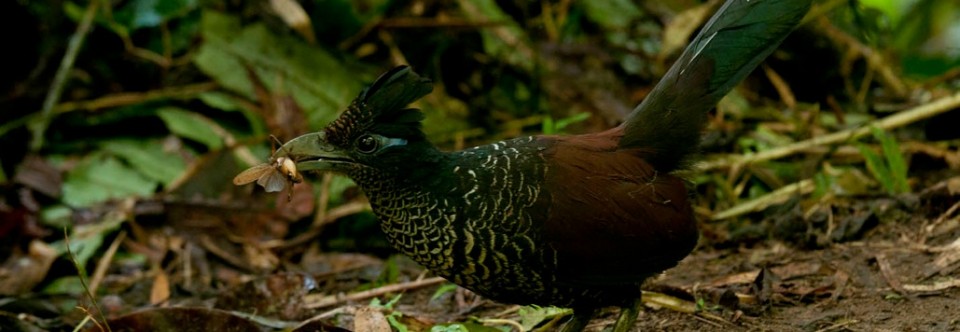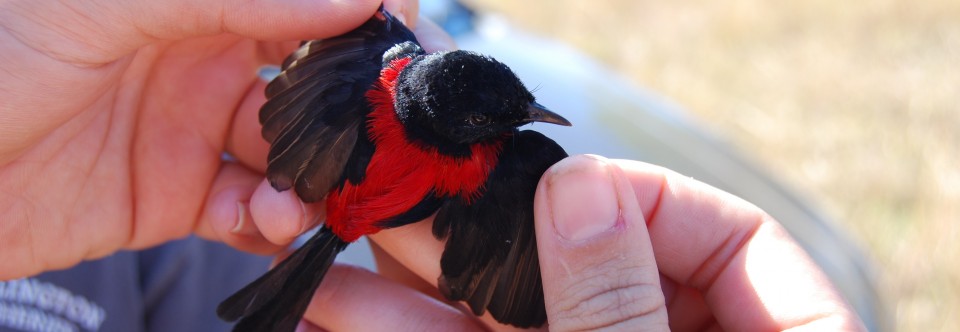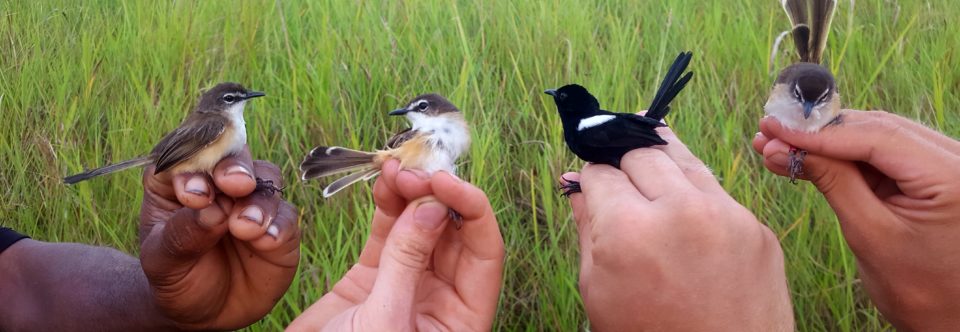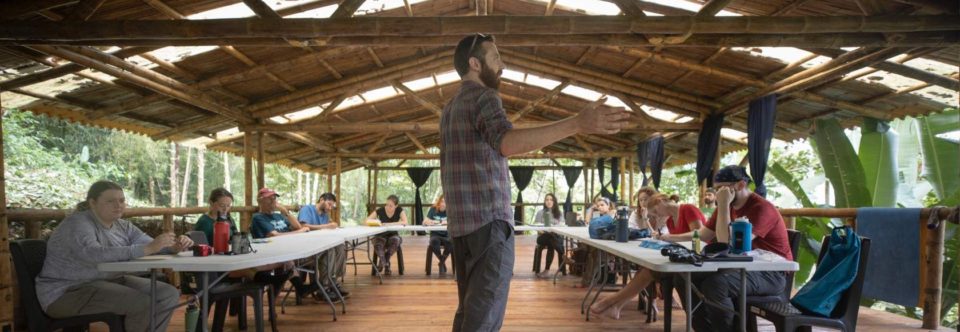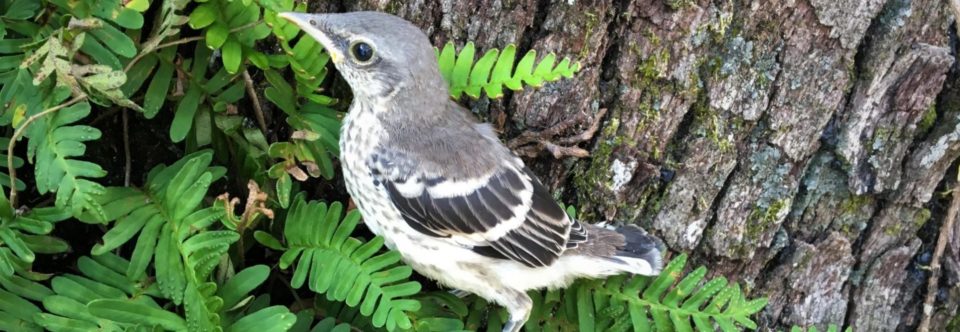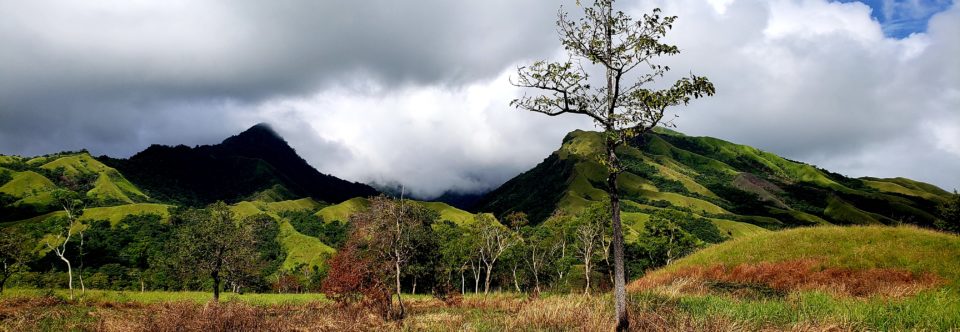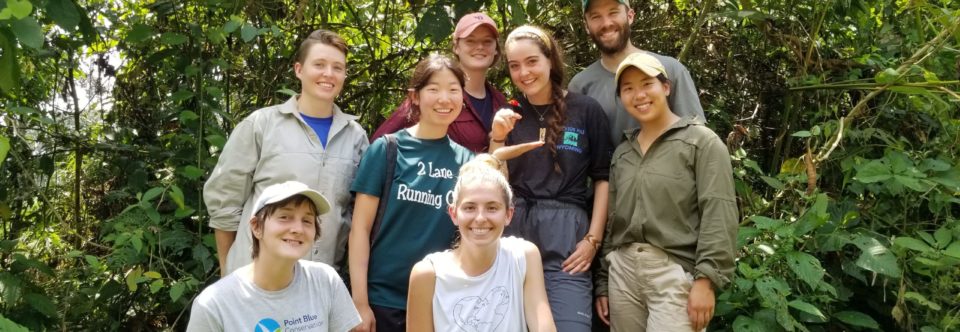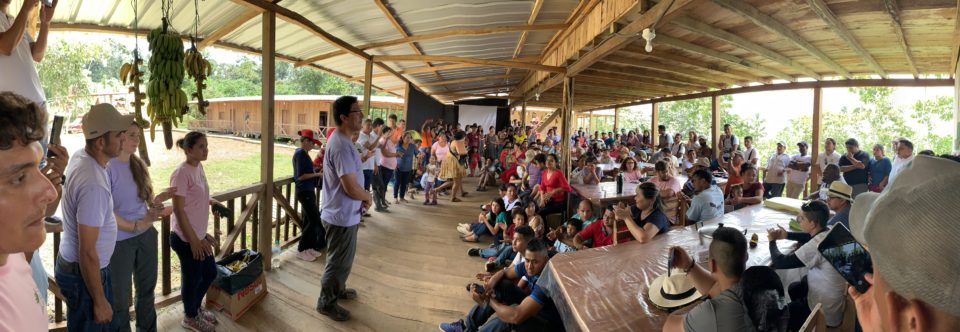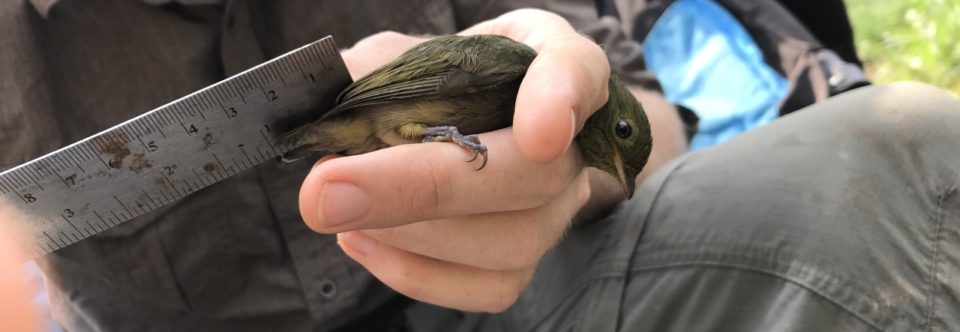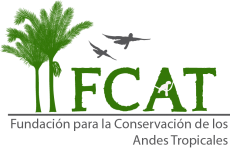"Welcome!"
Welcome! Our lab explores how the environment that organisms experience shapes their ecological, behavioral, evolutionary, and conservation trajectories. We focus our research on animal and plant and plant systems around the world, with active studies on plant-animal interactions, mating systems, demography and survival, signal evolution, movement and dispersal, and endangered species. Our lab takes a socially aware approach that combines community-engaged participatory research with capacity building, training, and education in the biodiversity hotspots where we work.
Fall 2017
Fall has only just begun here in New Orleans, yet the lab has been up to lots of exciting things in the last few months!
First of all, we want to congratulate Dr. Luke Browne and Dr. Samantha Lantz, both of whom finished their Ph.D.’s in May 2017. Luke received the ‘Top Thesis’ award in the Department of Ecology and Evolutionary Biology and has gone on to a post-doctoral fellowship at UCLA in the lab of Dr. Victoria Sork. Sam received Tulane University’s ’34 Award’, and is teaching at Cal State University Channel Islands and working in the private sector as an environmental consultant.
We are excited to welcome our newest Ph.D. student to the lab, Kaushik Narasimhan. Kaushik is funded from a Louisiana Board of Regents Fellowship. After helping lead our Tropical Ecology and Conservation class in Ecuador and finishing his Masters Thesis at Antioch University over the summer, Kaushik has been busy taking classes and preparing to go back to Ecuador next summer for his first field season. He is also spearheading a project to process and analyze several years worth of camera trap data from Ecuador.
Brock Geary, entering the fifth year of his Ph.D., has had quite a productive few months. He lined up a post-doctoral fellowship with Dr. Paul Leberg to continue his work on pelicans after his expected graduation in May 2018, and continued his fieldwork with brown pelicans this summer. He received multiple grants to support his work, including the AOS Research Award, the Louisiana Environmental Education Commission’s University Research Grant, the LA SeaGrant UROP and Tulane Newcomb Foundation grants. In addition, he presented on his work at the American Ornithological Society (AOS-SOC) in Michigan and had a paper accepted at PLoS ONE (Geary et al. 2017)! Congrats Brock!
Erik Enbody spent his summer indoors, at the lab bench at Tulane and in collaborator Scott Edward’s lab at Harvard creating libraries for his sequencing work on Papua New Guinea’s White-shouldered Fairy-wren, which is supported by his NSF doctoral dissertation improvement grant (DDIG). In August, he presented the results of his recent behavioral work on Malurus wrens at the AOS-SOC meeting in East Lansing, MI.
Zoë Diaz-Martin completed her field season in June, after traveling across Ecuador to collect the bulk of the samples she’ll need for her dissertation. Afterwards, she helped to teach Tulane’s Tropical Ecology and Conservation course in Ecuador. She was recently awarded the Mellon Mays Travel and Research grant and is currently back in New Orleans completing lab work and data analysis. She’s looking forward to traveling to Wales in November to participate in the PR Statistics Landscape Genetic Data Analysis workshop.
John Jones returned from Papua New Guinea and Australia after an extended field season this past summer. He presented the results of this pilot research at the AOS-COS meeting in August, and had a paper on eastern bluebird competition accepted for publication in the journal Frontiers in Ecology and Evolution (Albers et al. 2017).
Sarah Khalil spent her summer chasing both birds and undergrads in Australia. She led an incredible crew of 6 undergraduates through the NSF IRES program, where they conducted independent research on behavioral ecology in the red-backed fairywrens. Sarah spent most of her time in the field catching and collecting samples from the wrens, and is now analyzing her data back in New Orleans. She is excited to attend the conference for the Society of Integrative and Comparative Biology (SICB) in San Francisco this January to present her preliminary results from the season.
Jordan Karubian led the Tropical Field Biology and Conservation course along with co-instructors Dr. Renata Ribeiro and Dr. Luke Browne in Ecuador in May. During this two-week course 13 Tulane undergrads worked closely with our Ecuadorian colleagues from FCAT to gain first hand experience in research and conservation. He also had fun visiting Brazil over the summer. Jordan had four new articles accepted since the last update: two in PLoS One, one in Emu, and one in Journal of Insect Conservation.
Read MoreSpring 2017
As the spring semester comes to a close, the lab has some exciting updates since our last post.
Two of our Ph.D. candidates, Sam and Luke, are graduating this semester!
Luke successfully defended his dissertation this spring! After graduation and helping lead the Spring offering of our Tropical Ecology and Conservation class in Ecuador, he will make a migration westward to start a postdoc position at the La Kretz Center for California Conservation Science at UCLA this fall.
Sam successfully defended her thesis in March, and also published one of her chapters earlier this year (Lantz et al. 2017).
Brock has begun his fieldwork for another season, and is also assisting in other coastal bird projects around Louisiana! Him and Kristen Rosamond, a Tulane undergraduate, have received funding together from the Louisiana SeaGrant UROP and Tulane Newcomb Institute. Brock has also received grants from the LDWF Louisiana Environmental Education Commission, Tulane EEB department and American Ornithological Society to continue his work.
Erik had a busy spring returning to the field in Papua New Guinea for some additional data collection. His paper (with Sam and Jordan) on Malurus fairywren feather structure was accepted for publication in Ecology and Evolution (Enbody et al. 2017). He and Jordan also received an NSF doctoral dissertation improvement grant (DDIG) for their work on genetic mechanisms of coloration in the White-shouldered Fairywren.
Zoë defended her prospectus earlier in the semester, and passed with flying colors! She has been travelling throughout Ecuador since January collecting Oenocarpus samples for her project.
John presented data collected during his first field season in Papua New Guinea at the Society of Integrative of Comparative Biology held in NOLA in January, 2017. Currently, he is in Papua New Guinea (with Australia following) conducting his second pilot field season in Western and Milne Bay Provinces. John also published two papers this semester in Ethology (Jones et al. 2017) and Global Ecology and Conservation (McNeil et al. 2017).
Sarah has been busy taking classes s well as preparing for her field season in Brisbane, Australia where she will be collecting data for her dissertation as well as leading this summer’s cohort of IRES students. You can find updates of their season on the IRES website! She also received a a grant from the Tulane EEB department to support her work.
Jordan enjoyed teaching Experimental Animal Behavior this Spring, a course in which students conduct independent research projects on animal behavior at the zoo, and is looking forward to co-teaching a Tropical Field Biology course with Dr. Luke Browne and Dr. Renata Ribeiro in Ecuador this summer. Jordan was a co-author on a paper with former honors thesis student Erik Iverson in the journal Auk that summarizes the current understanding about bare part coloration in birds (Iverson and Karubian 2017). Jordan co-authored a paper with Jenny Hazlehurst on hummingbird pollination biology that came out in Journal of Pollination Biology (Hazlehurst et al. 2017). Jordan also joined the board of the Jocotoco Foundation in Ecuador.
The lab received a grant from the Morris Animal Foundation with Dr. Renata Ribeiro and Dr. Howard Meilke to continue research on impacts of sub-lethal exposure to lead on mockingbird behavior and condition.
The lab is also excited to welcome Kaushik Narasimhan as a new PhD student, who will start at Tulane in Fall 2017 with a fellowship from the Louisiana Board of Regents.
Read More
